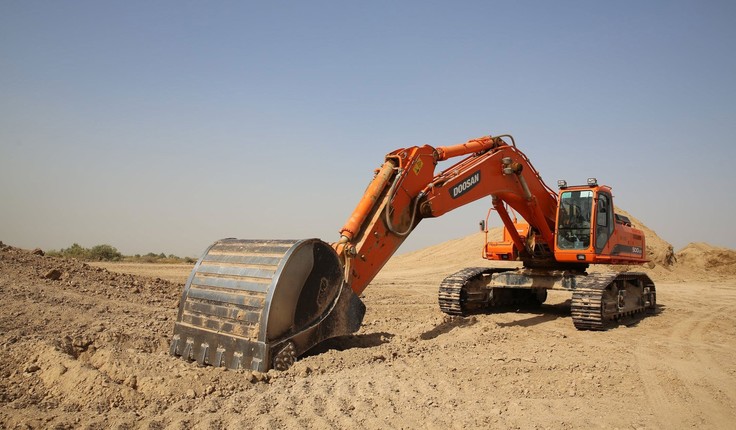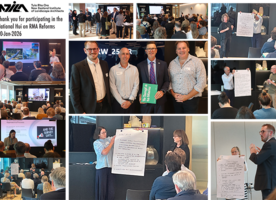News
Fast tracking of 'shovel ready' projects good for LAs and the economy
Posted 06 05 2020
in News

‘shovel ready’ projects is good news for the landscape architecture profession
The NZILA Tuia Pito Ora head says the fast track consenting of some ‘shovel ready’ projects is good news for the landscape architecture profession but warns some projects will not be eligible for quick processing.
On Sunday the Government announced a major element of its COVID-19 rebuild plan with a law change that will fast track eligible development and infrastructure projects under the Resource Management Act.
Environment Minister David Parker says the sorts of projects that would benefit from quicker consenting included roading, walking and cycling, rail, housing, sediment removal from silted rivers and estuaries, new wetland construction, flood management works, and projects to prevent landfill erosion.
The changes were approved by Cabinet last week and new legislation is expected to be passed in June.
“We are acting quickly to get the economy moving again and our people working. Part 2 of the RMA will still be applied. Projects are being advanced in time, but environmental safeguards remain,” David Parker says.
“The consenting and approval processes that are used in normal circumstances don’t provide the speed and certainty we need now in response to the economic fallout from COVID-19. The new processes will get projects started sooner and people into jobs faster,” he says.
The NZILA President says it is interesting to see the government is working hard and quickly to facilitate economic activity, particularly in the regions.
Brad Coombs says the law change will be effective “as opposed to the normal timeframes for consenting which can drag on for years.”
He is not concerned controversial projects will be fast tracked too quickly, saying the government will be installing some high powered decision makers led by Environment Court judges so “the quality of decision making should be there.”
He says this new legislation will only apply to certain types of projects. “There’s some which could have really contentious or highly complicated effects which wouldn’t be appropriate to be processed in such a short time-frame.”
For landscape architects, Brad says this law change brings opportunity. “I think this is a good way to get our members out there, facilitating large scale infrastructure projects that get people back into the workforce.”
You can see more reaction from Brad to the announcement in the Zoom video below.
KEY POINTS FROM THE GOVERNMENT ANNOUNCEMENT
A number of “shovel-ready” projects identified by the Infrastructure Industry Reference Group are likely to be accelerated under the fast-track consenting process. These are “ready to go” developments which can start once the construction industry returns to normal.
The fast-track process is designed as a short-term intervention to help with economic recovery from COVID-19 and the legislation will be repealed in two years. Existing Treaty of Waitangi settlements will be upheld, as will sustainable management and existing RMA national direction.
The Minister for the Environment will determine which projects will enter the fast-track resource consenting process for public and private-led projects, with reference to criteria, and with projects named through Orders in Council. Designations for public assets and infrastructure can also be part of this fast-track process. The resource consent applications for these projects will be processed by an Expert Consenting Panel. Once a project is referred to the Panel there is a high level of certainty the resource consent will be granted.
The Expert Consenting Panels will be chaired by a current or retired Environmental Court Judge or senior lawyer. Each Panel will have a person nominated by the relevant local councils and a person nominated by the relevant iwi authorities. The Panels will have expertise in resource management, technical project advice, environmental protection, tikanga Māori and mātauranga Māori.
The Expert Consenting Panels will issue decisions within 25 working days after receiving comments on the application. (This could be increased to 50 days for large scale projects.) Existing Treaty of Waitangi settlements will be upheld, as will sustainable management and existing RMA national direction. Appeal rights will be limited to points of law and/or judicial review to the High Court, with one further right of appeal to the Court of Appeal.
12 Feb
NZILA lodges submission on Planning Bill and Natural Environment Bill

There’s still time to have your say
Tuia Pito Ora New Zealand Institute of Landscape Architects has lodged its formal submission on the Planning Bill and Natural …
09 Feb
Weekly international landscape, climate and urban design update

Monday 9 February
This is your weekly international snapshot of what’s happening across landscape architecture, climate adaptation and urban design. Drawing on credible …
02 Feb
RMA Reform submission update

Call for feedback and images
Submission framework The Environmental Legislation Working Group thanks all members who made the effort to join us at the national …
Events calendar
Full 2026 calendar